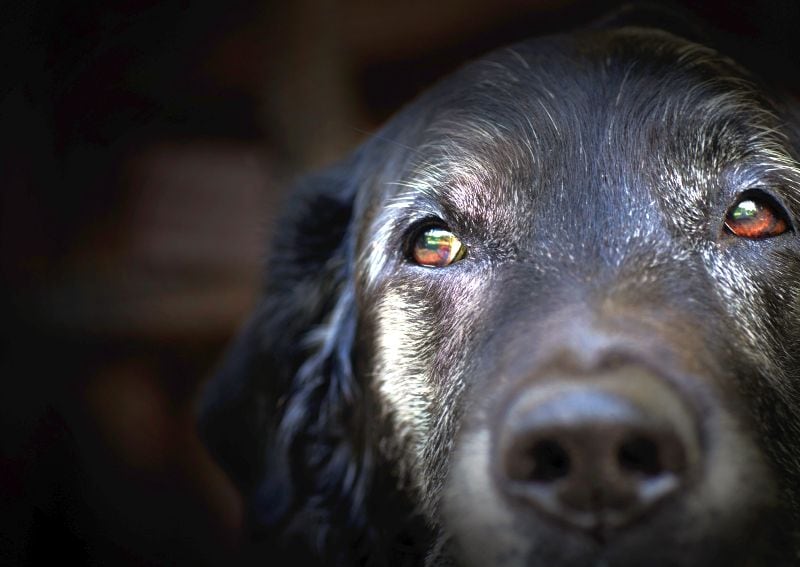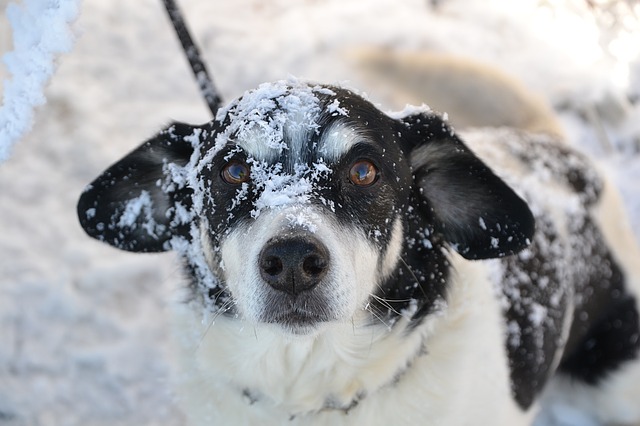If you’re reading this, you probably consider yourself lucky to be sharing your life with a loving canine companion. But while that time is somewhat limited, the memories we make with our furry friends are eternal.
Nevertheless, it’s a good idea to understand your dog’s life expectancy so that you can properly prepare and make the most out of your time together. Below, we’ll share how long dogs typically live, as well as the average life expectancies for some of the most popular breeds.
Key Takeaways: How Long Do Dogs Live?
- Most dogs live for about 10 to 13 years. However, there are a number of variables that influence the lifespan of individual dogs, including size, breed, and any health issues that are present.
- Generally speaking, small dog breeds live longer than large dog breeds. For example, Chihuahuas, Havanese, and Pomeranians tend to live much longer than Great Danes, bulldogs, or Rottweilers.
- As another general trend, mutts tend to outlive purebred dogs. This is likely due to the large gene pools mixed-breed dogs descend from, as opposed to the relatively small gene pools that produce purebred dogs.
How Long Do Most Dogs Live?
Pinpointing how long most dogs live is a challenge since there are so many variables that play into a dog’s longevity including breed, health conditions, and quality of life.
That being said, most dogs live an average of 10 to 13 years. However, there’s lots of variation within this data set. For example, small dogs tend to live longer than large ones, and mixed-breed dogs often tend to live longer than purebred pooches.
What Is the Average Life Expectancy of Different Breeds?

It’s important to remember that every dog is different, and your individual doggo’s lifespan may fall outside of the projected range discussed below. With that in mind, here are some of the mean lifespan ranges for some of the most common purebred canines:
- Akita: 10 to 12 years
- Australian shepherd: 13 to 15 years
- Basset hound: 10 to 12 years·
- Beagle: 12 to 15 years
- Bernese mountain dog: 6 to 8 years·
- Bichon frise: 12 to 15 years
- Border collie: 10 to 17 years
- Borzoi: 7 to 10 years
- Boston terrier: 13 to 15 years
- Boxer: 10 to 12 years
- Brittany: 12 to 15 years
- Cane corso: 10 to 12 years
- Cavalier King Charles spaniel: 9 to 14 years
- Chihuahua: 12 to 20 years
- Chow chow: 9 to 15 years
- Cocker spaniel: 12 to 15 years
- Dachshund: 12 to 16 years
- Dalmatian: 10 to 13 years
- Doberman pinscher: 10 to 13 years
- English bulldog: 8 to 10 years
- English springer spaniel: 12 to 14 years
- French bulldogs: 10 to 12 years
- German shepherd: 10 to 12 years
- German shorthaired pointer: 12 to 14 years
- Golden shepherd: 10 to 12 years
- Great Dane: 8 to 10 years
- Havanese: 13 to 15 years
- Labrador retriever: 10 to 12 years
- Leonberger: 8 to 9 years
- Maltese: 12 to 15 years
- Mastiff: 6 to 12 years
- Miniature schnauzer: 12 to 15 years
- Newfoundland: 8 to 10 years
- Norfolk terrier: 12 to 15 years
- Papillon: 13 to 15 years
- Pembroke Welsh corgi: 12 to 15 years
- Pomeranian: 12 to 16 years
- Poodle: 12 to 15 years
- Pug: 12 to 15 years
- Rhodesian ridgeback: 8 to 10 years
- Rottweiler: 8 to 10 years
- Samoyed: 12 to 14 years
- Shetland sheepdog: 12 to 13 years
- Shiba Inu: 12 to 15 years
- Shih tzu: 10 to 16 years
- Siberian husky: 12 to 15 years
- Vizsla: 12 to 15 years
- Weimaraner: 11 to 14 years
- Whippet: 12 to 15 years
- Yorkshire terrier: 13 to 16 years
How Long Do Mixed Breed Dogs Live?
Generally, mixed breed dogs tend to have a longer life expectancy than purebred dogs.
This is due in part to the fact that purebred pooches are more likely to pass on genetic abnormalities due to the relatively limited gene pools they descend from. By contrast, mutts usually have very diverse gene pools, thanks to the combination of breeds in their family trees.
However, there’s a lot of variation amongst mutts and this is only a general trend.
In other words, an individual mixed breed dog is not necessarily likelier to live longer than an individual purebred dog. It’s just that — statistically — mutts tend to outlive purebred pooches.
When it comes to a mutt’s average lifespan, it usually boils down to the mixed breed dog’s weight.

On average, mixed-breed dogs under 20 pounds had an average lifespan of 11 years. Mixed breed dogs over 90 pounds had an average lifespan of 8 years.
Do Spayed/Neutered Dogs Live Longer?
Spayed and neutered dogs tend to live longer than their intact counterparts.
An important thing to note is that the increased lifespan effect is much more significant in female dogs than male dogs. Regardless, spayed and neutered dogs are less at risk of developing infections along with behavioral issues so there are certainly many pros to considering spaying/neutering your dog.
Does a Dog’s Size Influence His Lifespan?

When it comes to a dog’s lifespan, size certainly matters. In a 2013 study published in The American Naturalist, researchers found that large dogs age significantly faster than small ones.
For example, one data point found that Chihuahuas live an average of 39% longer than Newfoundland dogs. Hence, smaller dogs typically lead longer lives than larger canine companions.
What Is the Record for the Oldest Dog Ever?
The oldest dog ever on record was an Australian cattle dog named Bluey who lived for an incredible 29 long years! This is kind of surprising, as Australian cattle dogs are medium-sized pups, weighing about 30 pounds. This just goes to show that there are always outliers amongst dog lifespan norms.
Do Dogs Live Longer than Wolves?

Given that domestic dogs spring from within the wolf family tree, it makes sense to consider the lifespans of these wild-living canines when thinking about canine longevity.
We can’t determine the average lifespan of the direct ancestor of modern dogs, but we can get some clues from some of the wolf species still walking around on the planet (domestic dogs don’t descend directly from any living wolves — they descend from a now-extinct relative of gray wolves).
As it turns out, domestic dogs outlive wild wolves.
Gray wolves live an average of 6 to 8 years while red wolves usually live for 5 or 6 years. However, some wolves undoubtedly exceed this average, with some individuals living up to 13 years or longer.
It’s important to note that part of the reason wolves have a shorter average lifespan than dogs is due to their high puppy mortality rate; some estimates contend that 40 to 60 percent of wolf puppies die — mainly due to starvation. But it’s worth noting that wolves kept in captivity can live between 12 and 15 years.
What Kinds of Things Can You Do to Help Your Dog Live Longer?

While genetics certainly play their part in your dog’s livelihood, you can help your furry friend stay around as long as possible by committing to a couple of essential practices.
For one thing, it’s important to stay up to date on your pup’s visits to the vet. This includes staying on top of all necessary vaccinations and medications. You’ll also want to make sure that your furry friend eats a high-quality, healthy dog food and gets an appropriate amount of exercise on a daily basis.
And if you haven’t found your best buddy just yet, be sure to seek out a reputable dog breeder and inquire about your future friend’s health history. Should you adopt (which is awesome!) make sure you speak with the animal shelter about your dog’s current and projected state of health.
***
Though our time with our dogs is limited, understanding their expected lifespan can help us not take our furry friends for granted. After all, our four-footers make our lives truly meaningful.
How old is your furry friend? What type of dog do you have? We’d love to hear all about it in the comments below!











Leave a Comment